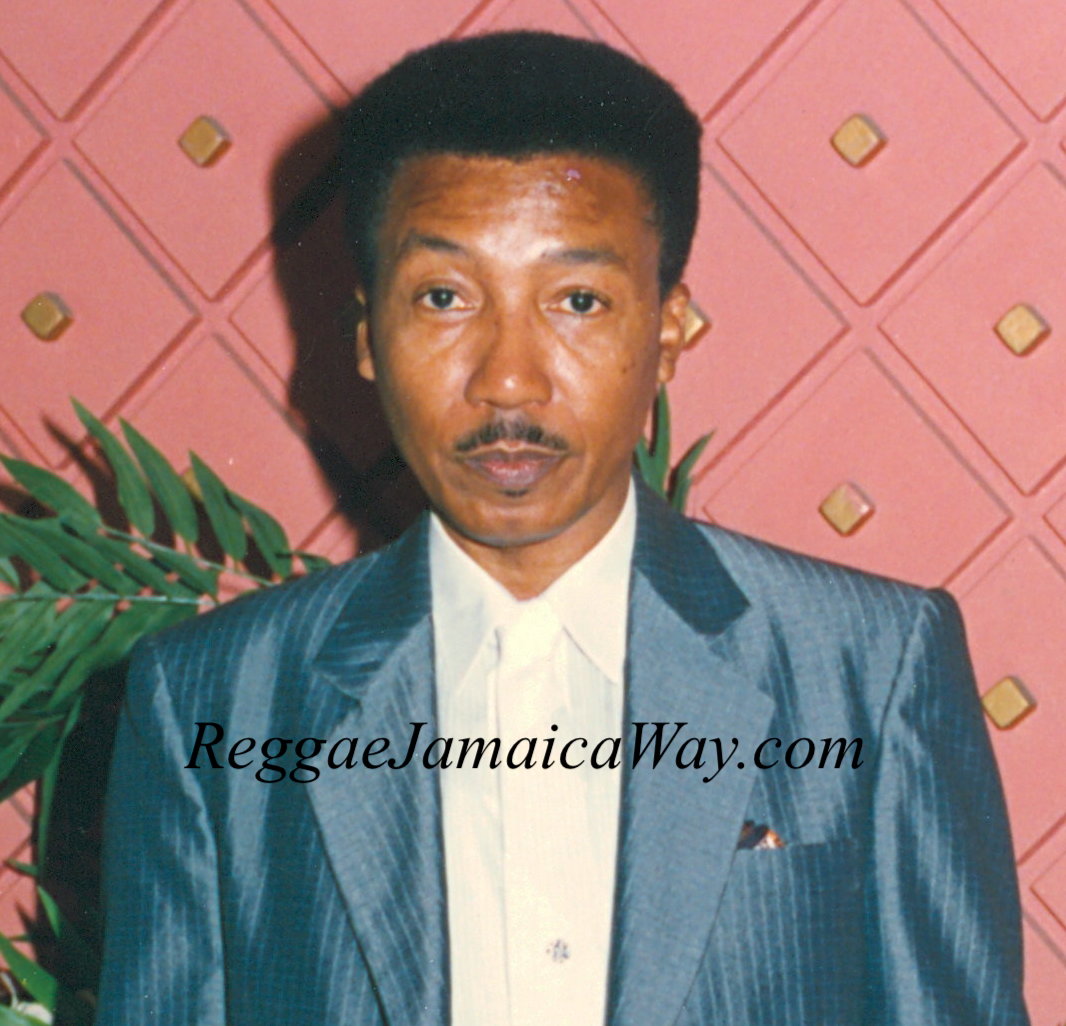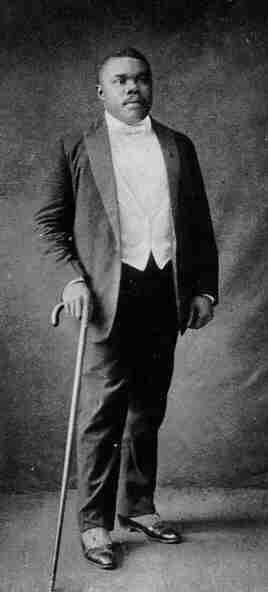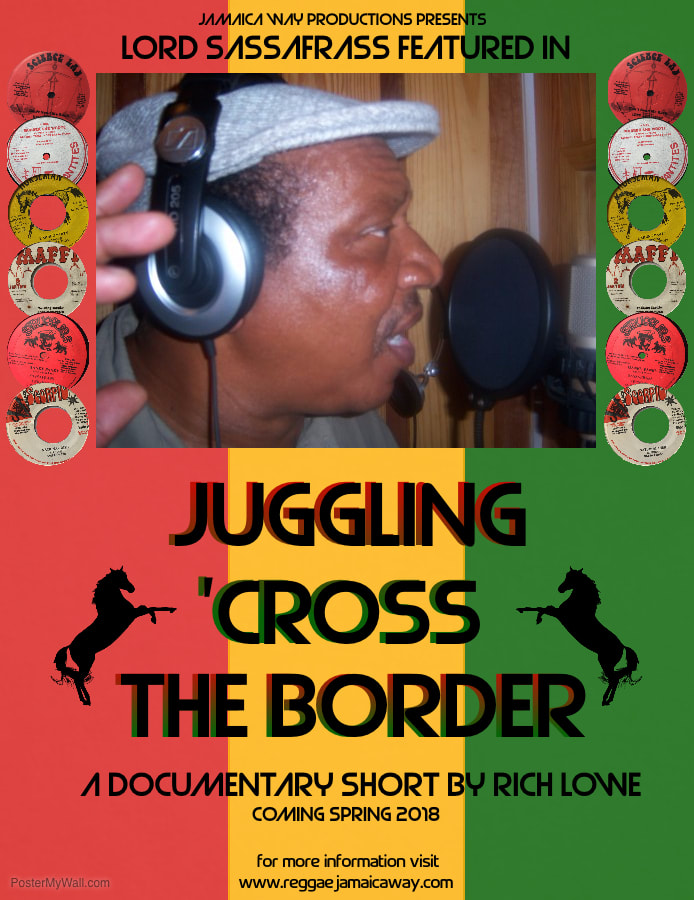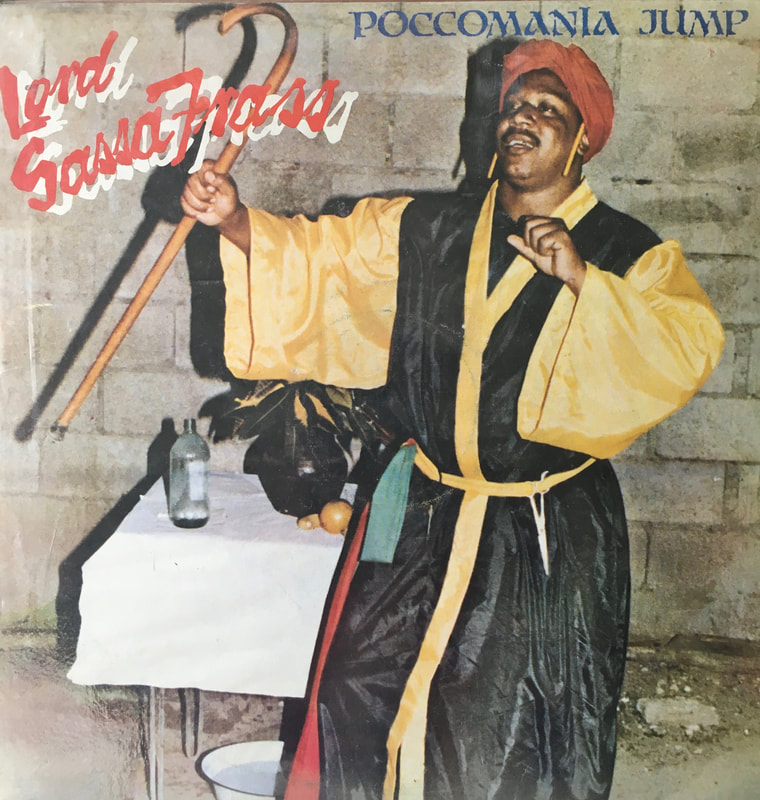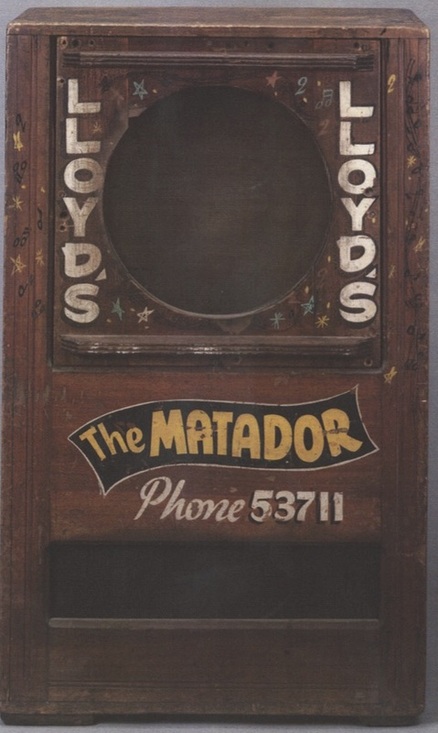|
PRESS RELEASE (January 14, 2020) Lloyd Daley, reclusive and prolific Jamaican music producer, featured in revealing new biography - The Matador, by Rich Lowe Lloyd “The Matador” Daley passed away on March 18, of 2018. Now - two years after his passing, a new book The Matador – Sonic Pioneer of Jamaican Music reveals the impact he made on Jamaican music that continues to this day. Author Rich Lowe revisits Daley’s memories of building some of the most powerful amplifiers on the island of Jamaica, forming the Matador Sound System, and becoming a top selling music producer in the golden eras of Jamaican Boogie-Shuffle, Ska, Rock Steady and Reggae music. Daley spent the last four years of his life working on this book project with Rich Lowe. Lloyd Daley produced Jamaican music that was consistent and brimming with quality. He recorded artists of the era who have come to be recognized over time: Members of The Skatalites, Dennis Brown, The Gladiators, The Wailing Souls, The Heptones, Little Roy, Freddie McKay, Alton Ellis, The Ethiopians, The Hippy Boys, The Abyssinians, Count Ossie, The Viceroys, and many more. As a sound system owner, Daley battled with giants of the day like King Edwards, Coxson Dodd, Duke Reid, and Bells the President. Unlike many other producers of the era, Daley was deeply involved in many of the technical aspects of Jamaican music production. He was reclusive, and in later years, reportedly angry over violations and piracy that he had experienced. Rich Lowe shares, “I was aware that even after sixty years since the start of his musical journey, that there was the possibility of speaking with Mr. Daley directly about his music. I decided to attempt contact. It was a long shot, and I don’t know what made him decide to engage in a dialogue. Much later, he would describe it as ‘vibes.’” Mr. Daley put his trust in this book. Sound system owner Prince Jackie Robinson noted to the author, “You must be a special person for Mr. Daley to share this information with you. He never does that.” Robinson then laughed heartily and continued: “The Matador was The Matador. Is a man that never stand for no foolishness.” The Matador – Sonic Pioneer of Jamaican Music is now available internationally via Amazon in paperback, Kindle and eBook formats. [email protected] ReggaeJamaicaway.com YouTube: Jamaica809
1 Comment
Biography
Lloyd Daley – “The Matador” Lloyd David Edward Daley (born 12 July 1939, died 18 March 2018), produced Ska, Reggae, Rock Steady, and Dancehall music in Jamaica under the title of “The Matador.” In addition to music production, Daley was an electronics engineer and he operated a dance hall sound system in Kingston, Jamaica, starting in the mid-1950s. Lloyd Daley operated this dominant sound system in the city where dancehall music was born – Kingston, Jamaica. At a young age, Mr. Daley formed his own electronics business where he repaired televisions and radios, built amplifiers, repaired motors, and installed video cameras, among many other projects. Over time, Mr. Daley created his sound system“Lloyd’s The Matador,” by employing sophisticated engineering techniques and selecting specific songs for play, and this system, with its tremendous capabilities, would ultimately play in every parish in Jamaica. As Lloyd’s The Matador Sound System played, Mr. Daley “clashed” with greats of the 1950s and 1960s, such as like Duke Reid, Sinclair “The Lion,” Bells the President, Count Boysie, King Edwards, and Coxson. Mr. Daley was always in search of something more, and he was a determined man who often sought out challenges and competition. Defiance often led to conflict, and The Matador—by definitionas suggested by his name—was prepared to manage this conflict to his advantage. Mr. Daley operated at the center of the sound system eruption in the mid 1950’s in Jamaica, recording as a producer in the golden eras of Jamaican Boogie-Shuffle, Ska, Rock Steady and Reggae music. As a producer, Daley had consistency, quality, and was selective. Lloyd Daley recorded artists of the era who have come to be recognized over time: Members of The Skatalites, Dennis Brown, The Gladiators, The Wailing Souls, The Heptones, Little Roy, Freddie McKay, Alton Ellis, The Ethiopians, The Hippy Boys, The Abyssinians, Count Ossie, The Viceroys, and many more. As a sound system owner, Lloyd Daley battled with giants of the day like King Edwards, Coxson Dodd, Duke Reid, and Bells the President. In addition to Daley’s music accomplishments, he also had a close connection with iconic Jamaican orchestra leader Eric Deans, whose daughter Deanna Deans, married Daley in 1967. The “Deans” name is legendary, Eric Deans was a multitalented musician who earned a reputation as the top orchestra leader in the 1940s and 1950s Kingston club scene. A new book about Lloyd Daley, The Matador – Sonic Pioneer of Jamaican Music is available internationally via Amazon in paperback, Kindle and eBook formats. __________________________________________________________________________________ “One of the unsung heroes at the time of course was Lloyd ‘The Matador.’ He was very, very good because Lloyd used to build all these sound system amplifiers.” - Graeme Goodall, Federal Recording Studio Engineer “Big sounds were never, ever friendly with each other. They only pretended until they meet in the same dance hall and then it is a different thing.” - Lloyd “The Matador” Daley _____________________________________________________________________________ [email protected] ReggaeJamaicaway.com YouTube: Jamaica809 Hugh Hendricks of Hugh Hendricks and The Buccaneers
[Hugh Hendricks Interview – Rich Lowe] I started my band in 1968. That is when we had Ska, going into Rocksteady. This was in New York City at the time. I first went to New York City in June of 1963 at age 20. I had to come to the U.S. before I was 21, so that I could come on my mother’s VISA, so I could get my green card. Actually I didn’t want to come to the U.S. and leave Jamaica! In 1965 I bought a house and there was a piano in the house. The lady asked if she could leave it because it was going to be too expensive to remove. That was the piano that we started to learn music from. I never did music in Jamaica as I was an electrician. I was about 21 year old and we got some guys from the local high school (Wingate High School) and started playing around and bought some equipment. This was in Brooklyn and none were professional musicians. We did some Soca with The Mighty Sparrow. He was coming to Madison Square Garden and I was the only Jamaican member of a band that was with the local Union in New York and you had to perform at to Madison Square Garden as a Union band. They couldn’t use his musicians, so I had to perform with Phyllis Dillon and Eddie Lovette. I got into Calypso and Soca, but it was Calypso at that time. Some of Sparrow’s musicians came back to New York, so I got some of his horn men. My horn section was basically Trinidadians and then Lester Sterling. Lester stayed with me for a long time starting in the early 70’s. He’s an original from The Skatalites. At that time they didn’t put The Skatalites back together and most of them migrated to the U.S. I knew Lester when he used to play with Byron Lee. He used to do my arranging for the horn section. Because of him, we started to play a lot of Ska. Harry Belafonte had a studio in the west side of Manhattan in the 60’s and Eighth Avenue that we used to use. Johnny Nash had recorded in Jamaica and a good friend of mine – Bill Garnett, was the engineer at the session. 639 Sound Studio - Hugh Hendricks’ Studio Eventually they had to close the studio and that’s when I decided to start a studio in my home in 1970-71. I went to the audio show with and bought an Ampex tape machine. They had one and at the end of the show they had one on display and they didn’t want to pack it up. I made an arrangement that the last day of the show I would purchase it with Bill Garnett. We had to make our own mixing board. I even had to use a file and a drill to make the slide for the faders. Everything was self-made in my basement. We had nothing like mixing boards like you have today where you go into Sam Ashe and buy one. I had a four-track half-inch. We would record on four tracks and then we would bounce them back down to two. Then we would record the other two, so we had six tracks out of a four-track tape. We always had that heavy bass and drum. When we took our records to master them, the engineers used to ask, “How you get so much bass on these records man?” Buccaneers Band members (At one stage, worked as a 16-piece band): Mc and conga player: Fred Tavares Singers: Bunny Rugs, Honeyboy Martin, Bunny Palamino, Patrick Gordon, Emmanuel Springer, Valentine Steelie Whitaker (keyboardist who also sang) Drums: Steve Hamilton (Jamaica, played for the Mighty Vikings), Junior Chambers (Original drummer, Belize, Drafted into Army and became a doctor), Bunny Palamino (Former Singer for HHB), Michael Tobias (Very good drummer that used to play with Sparrow. He was the guy who started the new drum beat for Soca. Hugh ended up giving him to Belafonte and he stayed for 8-9 years). “Water” from St. Vincent. Bass: Hugh Hendricks Lead Guitar/Rhythm Guitar: Joe Fry (USA), Emmanuel Hector (St Lucia), Lynford Karbi, Eric Frater, Emmanuel Springer, Julian Bevers (Original guitarist from Belize. He later became a doctor) The Buccaneers usually had a Four Horn Section: 3 original brass players - Tenor Sax: Wesley Bonito Alto Sax: Headley White Trumpet: William Rhodd Other brass players – Tenor Saxophone: Lester Sterling, Rudolph Glasco (good arranger, played alto and tenor sax), Joe Alexander (Josh’s brother). Trombone: “Wayne,” Ron Wilson (From Jamaica), Josh Alexander (from Trinidad) Trumpet: Anselm Scrubb, Oswald “Ossie” Lawson (who worked with Carlos Malcolm), William Rodd (first trumpeter), a man named “Reese,” Roy Cape (Trinidadian, maintained a big band in Trinidad for many years, also released a book), William Oxley (Sparrows guy, From Trinidad), Flugelhorn: Shake Keame (Shake was also a poet. He was from St. Vincent, was working in Germany and was asked to be Minister of Culture in St. Vincent and he did it. The government changed 2-3 years later and he was out of job. Shake came to NYC and was a teacher. Hugh hired him and he was a great arranger). Percussion: (Singers also used to play percussion) Juan Clouden (St Vincent), Patrick Gordon Keyboard: Ricky Geourzount (Original keyboardist, Hugh’s Brother in law), Owen Romeo (Guyana), Valentine Whittaker (aka Steelie). (Interview with Hugh Hendricks, 12-11-2016 by Rich Lowe) Michael Johnson is the Jamaican dancehall dj (rapper) by the name of Lord Sassafrass, who is well known for his work on Black Scorpio Sound System. Early 1970s dancehall lyrics led Sassafrass into the direction of his favored activity in life - horse racing. Crowds loved his references to great Jamaican race horses and jockeys.
The Podcast features the Jamaican Mento tune "Father Killam." Numerous versions of the tune are played along with discussion about the song itself. Ethnomusicologist Kenneth Bilby joins us as we play live versions, rare seven-inch singles and filed recordings from Jamaica. This mento song has an Obeah theme where an Obeahman is trying to catch a ghost or puppy that is causing problems for a woman.
The Podcast is featured on SoundCloud and is 60 minutes in length. Just click the button below to listen. 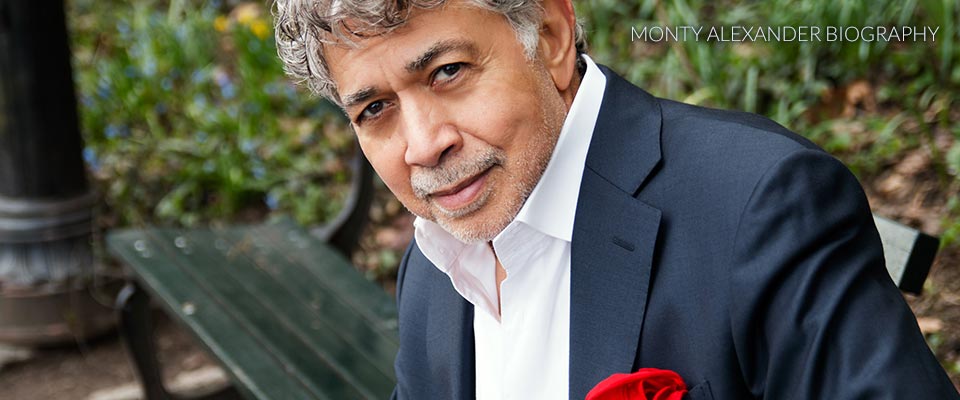 Despite his young age at the time, pianist Monty Alexander has intimate knowledge of the Jamaican Jazz musicianship in the late 1950’s-early 60’s. These Jazz musicians – often trained at Alpha School, were being developed by producers and early sound system owners for musical recordings and were uniquely Jamaican. In a 2002 interview Monty Alexander picks up the story, “The ones that aspired to the highest form of musical expression through their instruments were the Jazz musicians. There are the ones that really governed the best of what happened in popular music – music for the masses. These were the men who were seeking no boundaries, but yet they knew what to do in a given situation. It’s the same with Rhythm and Blues and Rock and Roll. I think it’s that same with smart guys like the producers that knew what to do with an idea or thought. They could harness it like a horse, to put saddle on it and then ride it in such a way where you could go from place to place. In Jazz it was Norman Granz. These are the men that see what the artist is doing and put the harness on it. They say, ‘You are busy on this journey, but bring it here so everybody can enjoy it. Play less so that everybody can enjoy it.” “You have the righteous hand of righteousness to keep you on the path. I thank God and I attribute it to the Creator. Some of us drift, while some of us are able to walk the line. Among the guys in the studio, there were enough paternal positive influences in Aubrey Adams and in Roland Alphonso, whereas some of the other guys were busy, busy messing their life up because they don’t know when to stop. I was able at an early age to discern that I admire that guy, but I don’t wanna do that. When you have good influences, they are gonna help you stay away from that. When you are lickle children, you are like leaves in the wind. I was very impressionable, very vulnerable, but I had this light on me and I’ve had the light all through my life that spirited me from those problems. In that gathering of those guys we had such a ball together. When musicians get together an’ we doin’ this thing that we love so much, we become like little children. We just laugh together. Even though I was young, I was grateful they embraced me being there and I didn’t back up because I was confident with what I was doing. When it come to droppin’ a riddim, I was as confident then as I am now. I loved it, so I like to think I didn’t hold them back. I don’t remember the place, I just remember those guys. To me that was the greatest honor that they would accept me. I was able to identify at an early age that these are the greatest people! I saw the movie actors on the screen like James Cagney, but he was just a movie actor, when the camera stopped he just went back to what he did. These musicians, the guy playin’ that horn, that was him playin’ that horn. He was obliged to always live. When you are a musician, you can’t just play the horn and forget it, you have to live a philosophy as Tommy McCook did. The truth is it’s a family all over the world. Jamaica make such a powerful statement in whatever it’s doin’. If it’s gonna be beautiful stuff, it’s gonna be beautiful stuff. If it’s bad stuff and we have some bad stuff, it’s bad stuff. It’s almost like the way Israel has affected the world in history and culture. Israel is the little place that has been the centerpiece positively as well as negatively. Jamaica is the same thing. Jamaica is like a holy land man! Of course the Rasta philosophy became such a reality for a world culture.” Source Rich Lowe, Personal communication with Monty Alexander, 2002 Some time ago, there was a project on Facebook where people would challenge one another for a description of a favorite Jamaican tune, each day over a seven-day period. They called it the “Seven Day Reggae Challenge.” The following is my listing with three extra tracks to make it an even ten! Some good tunes here, most of which I have listened to hundreds of times each. I found that after I hit ten, I started to have more and more songs swirl in my head that could be included, but here is the first ten.
Day One - "Guzoo Doctor" by Alerth Bedasse (aka Count Alert) - Chin's Calypso Sextet - Ivan Chin Available for purchase along with many more tunes by Bedasse a la Ivan Chin at: http://www.cdbaby.com/m/cd/efwilliamsabedasse Yeah this is Mento, but it is a great tune outa Jamaica by the originator Ivan Chin who passed away just last year (June 2024). The tune is a one-mic live recording which captures the energy and excitement of Mento. There is African originated "call and response" throughout between Alerth and others in the studio. Alerth's energy is spilling over in well-practiced vocal phrasing and timing. The story told is about a Guzoo Doctor - Obeahman, who is new in town and it's the "latest craze." An explanation is detailed of his cures for various physical malfunctions (swollen legs) and also the Doctor's abilities. When I drive in my car with my children, we rewind this one over & over. They know it by heart. Great tune and a very good example of Alerth Bedasse's song-writing and vocal abilities. Day Two - *As clarification, I'm not gonna record tunes for posting in respect to the artists (in this case living and dead), but if it's already on YouTube, I'll post it. Otherwise, I'll play it Friday night on WRUW. My selection is: Ken Boothe/Nicodemus - "Love is Real"/"Coke Seller" - Mor Well Esq 12" label - NYC- 1984 No tune to press and listen here, but trust me - Just a great tune. Sly and Robbie on riddim, produced outa NYC at one of my favorite record shops (at the time). Ken Boothe in his 1980s smooth mode - excellent singing with much effort applied. The transition to Nicodemus is instant (no gap). Nicodemus - to some extent, was vital in the live dance, but did not always transfer to record with the same vibrancy. This track is an exception where the lyrics flow through the expert style crafted through years of live dances - where Nicodemus was edgy and the Boss! Smooth 12," which I played countless times in a live dance. I also had the honor to MC a show by Ken Boothe this same summer of release (1984). Very nice times. Day Three - "Bridgeview Shuffle" Roland Alphonso and The Matador All-Stars, circa 1959, Produced by Lloyd Daley aka "The Matador" https://m.youtube.com/watch?v=3cNLedoCA2M This is an early instrumental produced by Lloyd "The Matador" Daley, intended for play on his sound system only. No real intention to sell in a shop to the public as a vinyl recording because at this time, the focus of shops was to sell foreign music. Play was for The Matador sound alone, with Mr. Daley's classic vacuum tube amplifier. Lloyd Daley comments from a 2015 interview, “In the 50s, most of the Speakers that was sold, was limited between 50 to 100 watts, and to use them on Sound Systems that were delivering thousands of wattage, we had to improve the 50 and 100 watt speakers, to handle more wattage. It is only the speakers I‘m talking about and not the amplifiers, which I built because most of my Amplifiers, was delivering over a 1000 watts and more. Lord Comic while playing my Sound, used to burn-up my Speakers Voice-coil when we played against other sounds, and sometimes they had to throw water on my speaker to extinguish the fire." This is why I picked this tune - it is dripping with history. It is pre-Lloyd Brevett as it features the great Lloyd Mason on his upright bass. Mr. Lloyd Mason is a Stony Hill graduate as well as a member of the Military Band for decades. Mason plays upright bass, electric bass (given to him by Coxsone), piccolo, and flute. With feature credit is Roland Alphonso who is a fellow Stony Hill graduate to Mason. "Bridgeview Shuffle" is also used by Brad Klein in "Legend of Ska" movie. Ahh Sound System & Jamaican Recording Industry history! Rich Lowe Day Four – The African Brothers - "Mysterious Nature" - Clef Records 7" - Produced by Joe Richards. (Also available on the Easy Star Lp "Want Some Freedom" which complied many of this group's singles). https://m.youtube.com/watch?v=do9mRmSOTdU This tune has gotten better and better as I listen over the decades. Originally I had it on cassette and it was a precious recording in the early 1980's, before there were such things as The Internet, EBay, or MP3s. In those days to hear this tune was rare. African Bothers tunes were on singles and I could only scrape up a few of them. Very nice to have the Easy Star CD which pulls many 1970 singles together with lineups of musicians which provide incredible depth. For those who may not know, this is a vocal trio of Sugar Minott, Tony Tuff, and Derrick Howard. This single features well placed organ work by the great Lester Sterling (I thinks it's Lester, but it could be Earl Lindo). The harmonies are so great, plenty of body, with sweetness of early un-"doubled" harmony by Sugar and what I call tinny sweetness of the great and under appreciated Tony Tuff. WhatATune! Day Five – The Heptones - "Mystery Babylon" - Hep Hep 7" - Produced by Lee Perry/Heptones - 1977 https://m.youtube.com/watch?v=gFgHlDimqSw This is one of those songs that everyone will enjoy - crossing musical borders - it has the "Cottage in Negril" effect, but with heavy culture. This was originally released as a 7" single and also as a 12" with dj Ranking King on the version. Gotta listen to this one! Day Six - I select Toots & The Maytals - "Domino" - Soulsville Shack, b-side 7" -prod by Prince Buster - 1965 https://m.youtube.com/watch?list=PLaJZRDmEC_MhjL6cS_SjA1brAHXYxUcym&v=bCqMLU2Vr00 Power boosted, thumping tune by the young Toots Hibbert on the b-side of "Not Too Old To Learn." Great Ska tune to play out if there is Domino being played. Instant rewind. Not a lot of people seem to know if this tune, which, obviously makes it better! Toots is powerful on this one as he salutes the sport of domino. Lloyd Knibbs is identifiable on the drum kit with mega rim shots and there is the Ska-based harmonica in the background. SImple tune, not much depth of lyric, but "Everybody love domino!" Day Seven – I select Claude Sang Jr's "Church Recording" given to me by Claude's brother Herman Sang. I don't know all of the details, but this is a live recording of Claude singing live at a church with a full choir. It is very "churchical" and has the acoustics of a church. It prominently features Claude's singing voice with an organ accompaniment. Midway the choir erupts! It is inspiring. This is a family recording and not released to the public. When brother Herman Sang received his honors at a tribute concert, he turned to praise his brother Claude Sang Jr. And played this recording. As you may know, Claude Sang Junior was the original member of The Jiving Juniors and before that with "Sang & Harriott." Claude recorded the groundbreaking "Lollipop Girl" with Derrick Harriott as a soft wax for Duke Reid and then years later as a formal release. Clause Sang is featured on the "Legends of Ska" film with both Derrick and Herman Sang. Day Eight – Al Campbell – “Hard Times,” Conscious Ragga Volume 2 What a great singer. Al Campbell is an under appreciated singer with a unique and pleasing vocal tone. Campbell has had a long and successful career, which started in the mid 1970's. He is consistently conscious and respected in the music community. This song "Hard Times," has a hypnotic feel to it as Al Campbell meshes his vocal style perfectly with the steady riddim accented by a repetitive guitar riff. The pairing of vocal with riddim is not uncommon for Campbell. His voice works well with a wide variety of music and that is a characteristic of his style - a classic voice, sung with discipline, on key, no shortcuts or gimmicks. You really can't find a better voice that Al Campbell. Day Nine – Jiving Juniors - "Lollipop Girl." Duke Reid, 1956 The Jiving Juniors are, Derrick Harriott, Claude Sang Junior, Herman Sang, Eugene Dwyer, and Maurice Walker. Before the Jiving Juniors were formed, came the tune “Lollipop Girl,” which has an interesting history, possibly dating back as early as 1956/7. Claude Sang Junior and Derrick Harriott attended Excelsior College together as youths and often sang songs together. The duo appeared as “Sang and Harriott” at Vere John’s Opportunity Hour at the Palace Theatre. This song was first recorded by Derrick Harriott and Claude Sang Junior at Stanley Motta’s in the form of a one-off acetate. One copy was given to Derrick Harriott and either that copy or another copy found it’s way to the live sound system. Duke Reid obtained the recording and used it as a premier song for his sound. "Lollipop Girl" continued to be a highly influential song without ever being released. This was some of the original “testing” of Jamaican tunes to see the public’s reaction. Duke Reid eventually collected the Jiving Juniors to record the song over again for formal release and sale in 1960. In an interview with Herman Sang of The Jiving Juniors, we discussed this groundbreaking song (Personal communication, April, 2016). “That recording was done at Stanley Motta’s location – I wouldn’t even call it a studio, but Motta had a recorder there. This was before the Jiving Juniors were formed. Claude played the piano and both of them sang “Lollipop Girl.” Eugene Dwyer also helped Derrick compose the song. It was done on a soft wax and Derrick got a copy. The technician at Stanley Motta’s also made copies and sold it to an area sound. Duke Reid got hold of the song and he was the only one that was playing it. Coxsone couldn’t get it. Duke Reid came to Derrick and asked to do the song over at Federal. I spoke with Derrick today and got some of the musicians. At that session, Ken Richards was the guitarist, on drums it was Drumbago because Lloyd Knibbs wasn’t on the scene yet. Knibbs was still working on the North coast at the hotels. Bass could have been Brevett. I played piano. It was a simple rhythm section. It was real hot. Duke had a radio program “Treasure Isle Time” and it got radio play. Derrick Harriott lost in his first appearance as a soloist at a Vere Johns competition. In a 2014 interview, Derrick Harriott remembers his second performance at the Palace Theatre at Vere John’s Opportunity Hour with Claude Sang Junior where they first presented “Lollipop Girl.” “The first time I was accepted, I wasn’t booed or anything. That was a pleasant thing too. What a good experience! I draw for my partner, which is Claudie Sang Junior. When I go back with him, (loud voice) it done! When I say done, it mean we mash up everything y’know! From then on we kept winning winning.” Day Ten – Leroy Sibbles and Earthworm, "Stress and Pain," First Chapter riddim, 2007 This is a solid song which combines an extremely talented and relevant veteran with an arguable unknown. Personally, Leroy Sibbles could sing the right song while he shops for vegetables in a market and it could be great. Sibbles is one of the best Jamaican singers in history with a silky voice. Together, these two artists sing "Stress and Pain" with the feel of sufferation of the common man. The First Chapter riddim is a traditional groove with a chunky edge. This is a tune to rewind over and over. 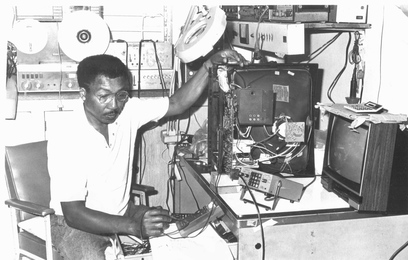 Lloyd Daley doing repairs in his workshop - July 1992. (Photo Courtesy of Lloyd Daley) Lloyd Daley doing repairs in his workshop - July 1992. (Photo Courtesy of Lloyd Daley) Rich Lowe, Jamaica Way, 2015 (This article features a 2014 interview with Lloyd “The Matador” Daley) Lloyd Daley - also know as “The Matador,” was born on 12 July, 1939 in Kingston, Jamaica. Mr. Daley is known for his work as an electronic technician, his role as a sound system pioneer, studio engineer, and producer. Mr. Daley worked as a linotype apprentice for a short time while attending Kingston Technical High School, where he graduated in electronics. Mr. Daley built his first amplifier to boost the signal strength of his army surplus walkie-talkie and he converted this same amplifier with four vacuum tubes, into a sound system amplifier. In 1955, Mr. Daley played his first sound system event at a social affair. The Matador was one of the very first sound systems to be named with a bullfighting theme. During this same period Lloyd’s Radio & Television Service was opened in Kingston and served to repair radios, television, and electronic equipment. By the end of the 1950s, The Matador was working on sono devices, and also working to improve the sound of amplifiers, which were in use with his own sound and in conjunction with a growing group of sound systems who were in search of the best amplifiers for their sound systems. The Matador provided the top amplifiers with clarity of sound and power of bass that had not been heard before and other technicians were unable to match. The Matador was building a reputation with his amplifiers and was able to demonstrate his unique sound at his own dances. Prince Buster and Duke Reid had Lloyd Daley adjust their amplifiers to improve their sound. In the late 1970s, Mr. Daley built one of Jamaica’s most powerful vacuum tube amplifiers with forty KT88 output tubes for “Jack Ruby High Power” sound system, which was owned by Lawrence Lindo (Jack Ruby). A fitting approach to a study of Lloyd “The Matador” Daley is from the perspective of El Paso Selector Samuel The First. Samuel describes selecting an Audley Rollins track during a pivotal clash against Ruddy’s Sound at Ruddy’s personal lawn: “There was a group call The Emotions, Audley Rollins. It was Lloyd Matador. [Samuel sounds out the various parts of the song – in detail] The chorus was ‘Hallelujah burning in my soul.’ The vibe, I start to rub dat riddim. Everybody start ‘Rae Rae!’” Samuel continues, “Matador used to build amplifier, his friend have this sound name Jackie’s HiFi. Lloyd ‘The Matador’ build that sound. Oh God man, you could feel it 300 miles. It have a round cool quality, bass note drop. A heavy, melodious bass. It like sustain in your brain. When bass pattern drop, it like one-half second sustain in your brain.” Lloyd Daley picks back up the story, “Jackie Robinson is the guy that I built his sound. He is still going strong. Jackie Robinson played cricket with Lawrence Rowe in Jamaica and is an electrician for Carriers. He was very impressed with my sound system resonance bass, so he paid me to build him an amplifier with that type of bass using 807 output tubes. He was a very good friend. Sam may not know that I built the first small amplifier for ‘El Toro Disco’ for Patrick Booker when he started his sound system while he was living at 15 Victoria Avenue.” Lloyd Daley built amplifiers for many sounds starting in the early 1950s, including El Toro Sound, Duke Hamilton’s Sound (St. Ann’s Bay), Count Muncey (owned by Roy Muncey of Gallaway Road), Sir Percy (owned by Percival Tibby), Supreme of Love sound (owned by Miss Powell and Pinchy from Bridge View, Kingston), King Prof Sound (located on Spanish Town Road in Kingston), and others. The creation of Matador amplifiers is what brought Lloyd Daley his first level of success in Kingston. This success can be defined by the young technician Daley - with his impressive amplifiers, confronting Duke Reid and Clement Dodd and others in the Dancehall arena. In a 2010 Interview, Federal Engineer Graeme Goodall comments, “One of the unsung heroes at the time of course was Lloyd “The Matador.” He was very, very good because Lloyd used to build all these sound system amplifiers.” As evidence of the exceptional virtues of Matador amplifiers, Matador is the only sound system to be able to successfully and forcibly take over the dancehall when Duke Reid refused to cut off his sound. This took place at the Success Club on 63 Wildman Street in Kingston. The dance was in celebration of a local Kingstonian, “Big Junior” who had co-starred in the James Bond Film, “Dr. No.” Big Junior was also a close friend of Coxsone Dodd. The island was bubbling with excitement over the Jamaican premier of this film and The Matador was about to take on a bull of a man (and sound) in Duke Reid. The arrangement was for Duke’s “The Trojan” Sound to play for one hour and then The Matador was to follow. Lloyd Daley recalls, “Duke and his ‘Enforcers’ would not stop playing and I had to sign-on with "Heavy Sugar" by Lloyd Lambert. I was able to sign on, while drowning out Duke Reid, so that he had to stop playing entirely. Duke, he couldn't do a thing, with "Cuttings" at his controls.” Finding it difficult to get the records played by competing sound systems, The Matador began recording his own music at federal Studios. The first 45rpm singles were produced in 1958 and featured Jamaican “Shuffle” style music, which was similar to Rhythm and Blues, but had a Jamaican flair. Later in his recording work, some of the earliest Ska music was recorded by Mr. Daley at Federal Studios. Most all of these releases were intended for sound system play on The Matador sound because Matador was creating music designed for exclusive play on his sound. In the Shuffle period, Jamaican music was a small run process and copies were sold or given away as exclusive gifts to fellow sounds. Some of these musicians recorded include Roland Alphonso (on “Bridgeview Shuffle”), Neville Esson, Owen Gray, Rico Rodriguez. By 1959-1960, Lloyd Daley was releasing music on his own “Matador” and “Mystic” record labels. Mr. Daley’s Ska music was recorded with an instrumental band christened “Matadors All Stars,” which featured many of the future Skatalites. Signature Matador Sound In the photo above, seated - second from the left, is Lloyd “The Matador” Daley with Edward Seaga on the immediate right as they sign contracts to play for Jamaican Independence. The Jamaican government signed the top six Sound Systems to perform at a series of Independence celebrations which took the form of parades with floats and street dances. Coxsone Dodd had interest in his competition and would visit Matador dances to listen to the music and evaluate the crowd. On one night, Clement Dodd was accompanied by his session pianist and the man who auditioned new talent – Herman Sang. Sang was known as “Hersang” of the City Slickers and was also a member of the Jiving Juniors. In a 2014 interview, Herman Sang recalls this night, “I went with Coxsone to a Matador dance once just to listen. If you have some idea of what your competition was doin’, and he’s being successful, then you could copy it right? So we went once just to listen for about an hour. That night we had a session and we did some mastering and Coxsone may have given a tune to Lloyd and had him play it. That could have been done, but I don’t remember. The Matador Sound was clean, the sound wasn’t distorted. When you try to ‘drive’ the speakers, you’re always ‘in the red’ as Goodie would say (Federal Engineer Graeme Goodall). The sound would be distorted or partially distorted. Lloyd didn’t like that, so his sound was very clean.” Unfortunately this early Dancehall era – like that of the 40s and 50’s Jamaican big bands, has virtually no recordings that were maintained. Lloyd Daley actually did record his sound system at dances on a Swiss made Revox reel-to reel recording machine. Daley recounts, “I had some recordings of my dances using the Revox machine, but those tapes may have been erased long ago by mistakes. I recorded my dances using a small speaker as a mic and got a wider range recording.” In 1966, the police dismantled a part of the Matador sound system because they said it was disturbing the neighborhood with the heavy bass resonance that was being produced. As a result, Mr. Daley sold major portions of the sound and focused his efforts on work in the recording studio. The electronic repair shop was moved to 43 Waltham Park Road in 1968. This shop also featured a rehearsal facility and recording studio where Jackie Mittoo’s “Dark of the Sun” and The Scorchers’ “Ugly Man” was recorded. Mr. Daley’s wife Deanna Deans – daughter of famed Jamaican band leader Eric Deans, helped to contribute to her husband’s work as a song writer. As a producer, the biggest hit for Mr. Daley came with the 1969 number one charted song “Bongo Nyah” which was sung by Little Roy. Matador then produced popular singles for artists like The Abyssinians (“Yim Mas Gan”), The Ethiopians (“Owe Me No Pay Me”), Dennis Brown (“Things In Life”), The Waling Souls (“Gold Digger”), The Gladiators (“Freedom Train” and “Rockaman Soul”), Alton Ellis (“Lord Deliver Us”), John Holt and The Paragons (“Equality and Justice”). Mr. Daley released music on a number of record labels, including Matador, Syndicate, Mystic, and Secret Agent. If the releases were selling quickly, Mr. Daley would merely stamp the blank label 7” single with an ink stamp, which read “Lloyd’s Television and radio.” Although Mr. Daley never released a one-artists album, many years later some of his recordings were released in compilation form by Heartbeat Records and Jamaican Gold Records. In the book Reggae, the Rough Guide author Steve Barrow commented that the releases “…superbly demonstrate how Jamaica’s musical heritage should be presented.” The musical direction selected by The Matador was not to follow the love song focused U.S. Soul music in the late 1960’s. He chose to record religious/Rastafarian and socio-political lyrics. Instrumentals were another focus and many tracks were released with musical contributions by Johnny Moore (trumpet) and Lloyd Charmers (keyboard), (“Zylon” was a Jamaican chart hit in 1969). As dancehall toasting (rapping) surfaced, music by U-Roy was recorded (“Sound of the Wise” and “Scandal”), but with a Matador touch that voiced the toast over the exclusive Matador instrumental track. The instrumental “Voo-Doo” was recorded by The Hippy Boys (also voiced by Little Roy as “Hard Fighter”) and was one of the first instrumental dub tunes where drum and bass had a dominating role. In 1970 Mr. Daley incorporated Lloyd’s Radio & TV Ltd, a limited liability company and sold appliances for Wonards. In 1970, RJR Radio opened his new business at 43 Waltham Park Road with radio hosts Don (“El Numero Uno”) Topping and Marie Garth. Matador had advertisements by “Pearl & Deans” (Palace Amusement Company) which were featured on four movie theatres in Jamaica: The Carib, Harbour View Drive-In, Tropical, and Ritz. In 1968 Mr. Daley had a 15 minute radio program to promote in music releases. This program ran for several years on RJR Radio at 10:15pm and was hosted by the great Charlie Babcock on “Sound Intensified.” In 1975, disillusioned by recurrent non-payment of royalties, he left the music industry to focus only on his shop and electronics. [Inspiration for this article was borne out of frustration when making a few entries in Wikipedia on the career of Lloyd Daley. I discovered that many of the entries were being deleted. At one point over 80% of the three pages that were written were deleted. What you are reading is a recreation of much of what was deleted as well as a robust addition of material from various Jamaican music industry giants, including Mr. Daley himself. Rich Lowe, May, 2015] __________________________________________________________________ Selected Discography:
*Countless single releases on the following 7” imprints – Matador Records, Lloyd’s Radio and Television Repair (hand stamp), Syndicate, Mistic, and Secret Agent labels. References
Barrow, Steve (May 2008). Reggae, The Rough Guide (2nd ed.). London, England: Penguin Books. p. 103. ISBN 1-85828-247-0. (Graeme Goodall, personal communication, November 11, 2010) (Herman Sang, personal communication, January 11, 2015) (Lloyd Daley, personal communication, May 5, 2014) (Phillip Samuels, personal communication, May 8, 2014) Lloyd Daley. In Wikipedia. Retrieved April 04, 2015, from http://en.wikipedia.org/wiki/Lloyd_Daley |
Archives
March 2024
|


